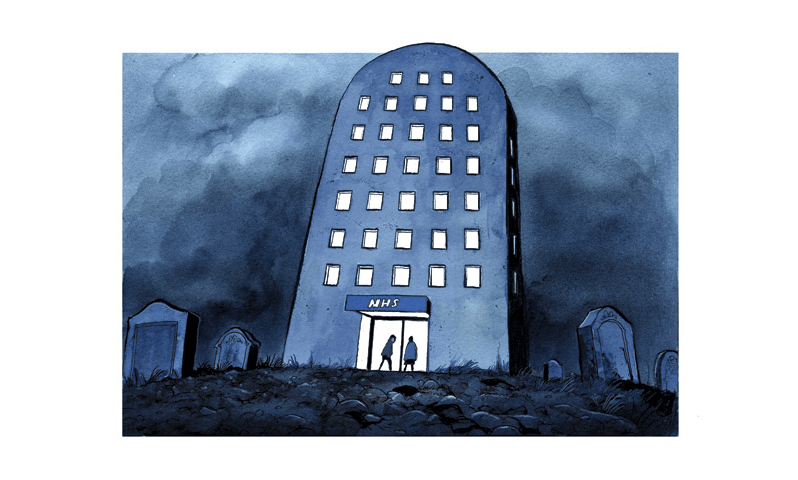Are the Conservatives going to repeat their mistakes of a decade ago on NHS reform? If a week is a long time in politics, perhaps ten years is such a lengthy period that it erases the memory entirely. The current Health and Social Care Bill is due for publication any day now and contains much of the same potential for an almighty political row as the Andrew Lansley reforms of 2011. Senior Whitehall figures and MPs have predicted that Matt Hancock’s new legislation could be ‘Lansley mark ii’, as I write in today’s i paper.
In talking to MPs across the Conservative party, from backbencher to minister, and from lockdown sceptic to restrictions enthusiast, I’ve found members fall into two groups on this reform. The first is those who haven’t paid much attention to what’s being proposed and think it is largely just a tidying up of the Lansley mess. They’re not wrong that the legislation will do this, putting integrated care systems on a statutory footing, and so on, but it does a lot more than that, and this is where the controversy will lie.
It’s never a question of ‘if’ there will be a political row over NHS reforms. It’s more what size the row will be
The second group of MPs has noticed this controversial stuff, which extends the Secretary of State’s powers over a whole range of things and these MPs are uneasy. One MP laughed bitterly when I asked what they thought of the plan: ‘Do I want the Secretary of State to have even more power? What do you think?’ One minister who I spoke to seemed less concerned about the legislation purely because he expected Hancock to be reshuffled soon, presumably killing off the power grab.
There have been moves already to water down the proposals. Last week, the Health Service Journal reported a U-turn on plans to axe the Independent Reconfiguration Panel, which approves changes to and closures of NHS services. This is one of the ways in which political interference in the NHS is made harder and is seen largely as a good thing because ministers often come under huge pressure from local MPs to preserve services even when they aren’t very good. NHS Providers, which represents trusts, had warned that the abolition of the IRP and the extra powers for ministers could damage patient safety. But despite the U-turn on the IRP, Hancock could still give himself more powers to intervene in reconfigurations at other stages.
IRPs, ICSs, STPs: all this jargon and the sheer complexity of the NHS means it is very easy for even bright politicians to switch off. One of the reasons the Lansley reforms became such a big row is that the people who should have been across them, including David Cameron, Nick Clegg and other senior figures such as Oliver Letwin, never really understood them. I have been told by a number of sources that No. 10 is in the same position now, with all its health bandwidth used up by Covid. Not only that, but those who have been warning Downing Street about the potential problems with this legislation say that it clearly isn’t fully behind the reforms. This will become a serious problem when the political rows start.
And it’s never a question of ‘if’ there will be a political row over NHS reforms. It’s more what size the row will be. The Conservatives haven’t attempted legislation in this area for a decade because they squandered all their political capital on the NHS with Lansley. They’ve spent the following years trying all sorts of different methods for rebuilding it. But the Tories never enjoy the same comfortable position on reforming the NHS that Labour does. When they try to change something, the row always becomes about their secret motives and whether they really do care enough about the NHS. They weren’t ready for that last time around. There’s currently no evidence that they’re any better prepared this time.







Comments